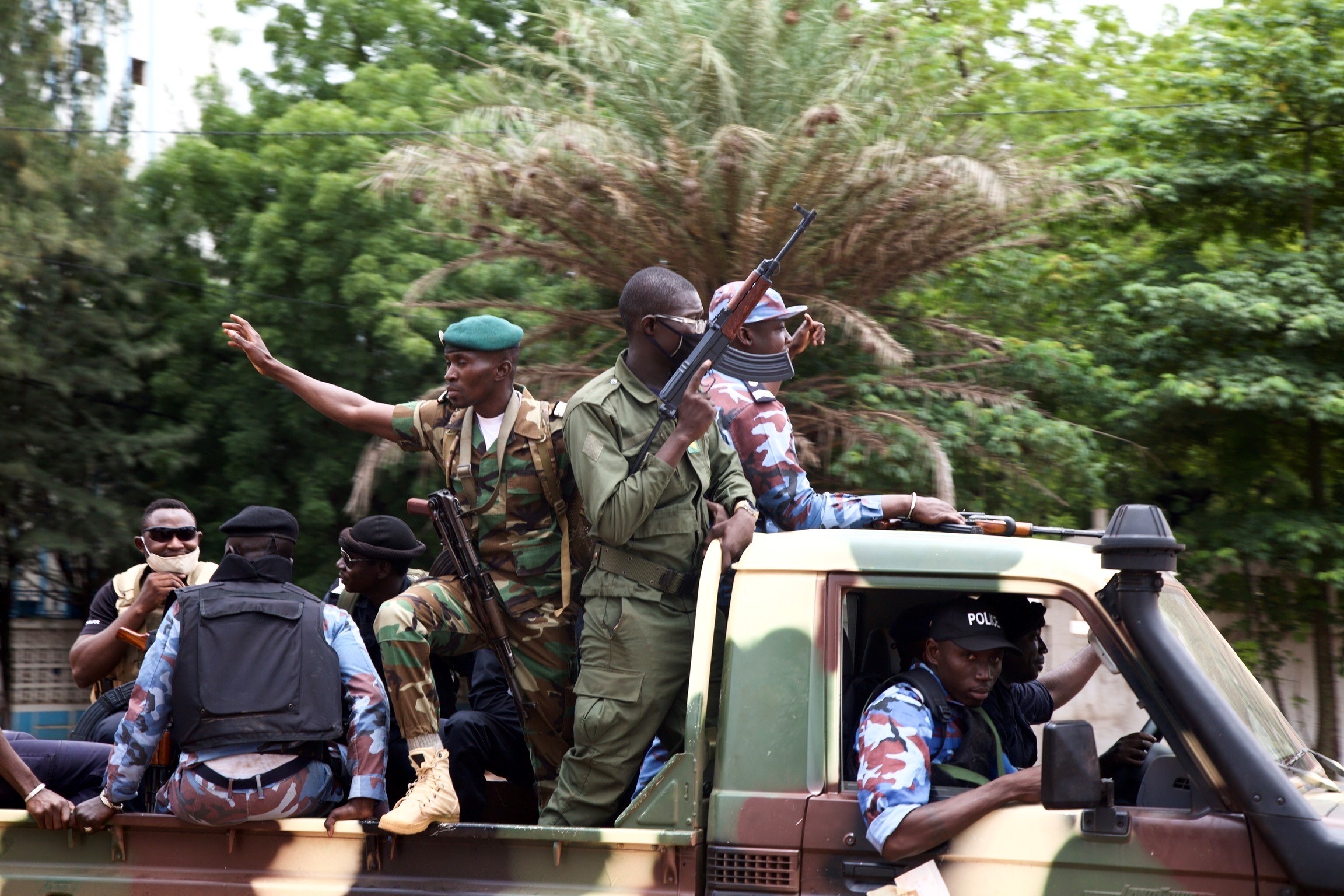Insurgency may not go in the next 30 years – Don
A university don and lecturer with Bayero University, Kano, Professor Bello Ibrahim, has warned that insurgency in North East and banditry may not end in the next 20-30 years. The don, who is also a Professor of Sociology at the university attributed the prediction to the fact that the region is battling with the major […]

Malian soldiers drive through the streets of Bamako, Mali on August 19, 2020, the day after rebel troops seized Malian President Ibrahim Boubacar Keita and Prime Minister Boubou Cisse in a dramatic escalation of a months-long crisis. – Mali awoke on August 19, 2020, to a new chapter in its troubled history after rebel military leaders forced Malian President Boubacar Keita from office, prompting its West African neighbours to threaten border closures and sanctions against the coup leaders.
Keita, embattled by months of protests over economic stagnation, corruption and a brutal Islamist insurgency, said he had resigned to avoid bloodshed. (Photo by ANNIE RISEMBERG / AFP)
A university don and lecturer with Bayero University, Kano, Professor Bello Ibrahim, has warned that insurgency in North East and banditry may not end in the next 20-30 years.
The don, who is also a Professor of Sociology at the university attributed the prediction to the fact that the region is battling with the major problems of poverty and lack of access to education as the two major reasons fuelling the crisis.
He gave the warning while speaking at the second reunion of BUK Sociology Class of 2008 held in Kano.
“There was a study we conducted on juvenile justice, where we found that youths of between 18-25 years, especially in Borno and Yobe states do not go to school. So, if bad people get to them, they could be easily influenced.
Xmas: Journalists donate to Abuja orphanage
ATBU teaching hospital doctors, others unite for patients’ wellbeing
“These people have been neglected without religious and western education. Unless something is done about these factors (poverty and lack of access to education), I don’t see these problems going away,” Professor Ibrahim added.
Earlier, the President of the Sociology Class, Sulaiman Aminu Abubakar, said the reunion was organised not only to meet and greet 14 years after graduation, but also to raise funds to help the families of deceased members as well as initiate and execute a project that will improve education in the state.
He explained that, “The essence of this gathering is for us to come together, we cannot say the government alone can handle everything, we felt at our own levels as former students currently working in different fields have something we can contribute.
“Alumni in institutions do great projects in their institutions and their immediate communities. Kano has a lot of areas for us to contribute to. We hope at the end of this gathering, we should be able to raise some funds to execute at least a project in one of the primary, secondary or even tertiary institutions in the state,” he said.
